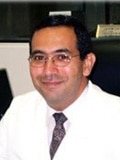
More Mental Health Articles
High Blood Pressure, a Silent Killer
According to recent estimates, nearly one in three U.S. adults has high blood pressure, but because there are no symptoms, nearly one-third of these people dont know they have it. In fact, many people have high blood pressure for years without knowing it.
Uncontrolled high blood pressure can lead to stroke, heart attack, heart failure or kidney failure. This is why high blood pressure is often called the “silent killer” because you can have it for years without knowing it. The only way to tell if you have high blood pressure is to have your blood pressure checked.
Its normal for your blood pressure to vary throughout the day. It can even vary slightly with each heartbeat. Normally, it increases during activity and decreases at rest. Its often higher in cold weather and can rise when youre under stress, startled by a loud noise or feel threatened.
Some people have what is called “white-coat hypertension” a condition where the anxiety of being in the doctors office raises their blood pressure. In that case, monitoring your blood pressure at home can help determine your true blood pressure.
The best way to get an accurate blood pressure reading is to monitor your blood pressure once a day at the same time so you minimize the effect that external factors have on the reading. Arterial pressure changes constantly. Normally blood pressure drops when you sleep. If you are experiencing especially high blood pressure in the mornings, it could be due to the time of day you take your medication. This can also be caused if you drink alcohol regularly.
Sleep apnea can also cause stress to our body that may elevate pressure. If you snore or wake up often, you should discuss these symptoms with your healthcare professional.
A single high reading of blood pressure is not an immediate cause for alarm. However, if you have a high reading, take your blood pressure several more times and consult your healthcare professional to make sure you dont have a problem.
New blood pressure guidelines were issued in the Seventh Report of the Joint National Committee on Prevention, Detection, Evaluation and Treatment of High Blood Pressure (JNC VII). Under the new guidelines, a reading of 115/75 is the level above which your risk of cardiovascular complications starts to increase. Even without any symptoms, a blood pressure level above this level can increase your risk of stroke, heart attack, heart failure and kidney failure. Patients with other risk factors for heart disease like patients with diabetes are more susceptible to complications of high blood pressure and their blood pressure should be kept at a lower range compared to the general public.
Symptoms such as headaches, dizziness or nosebleeds typically dont occur until high blood pressure has advanced to a higher stage one that may be critical to your health. But many people with uncontrolled high blood pressure never have any of these symptoms.
The term “prehypertensive category” is used for readings from 120 to 139 for systolic and from 80 to 89 for diastolic pressure is used as a warning zone time to take action against increasing your risk for heart disease, stroke and kidney disease. Consult your healthcare professional if you are in the prehypertensive range and start managing your blood pressure now.
Other Articles You May Find of Interest...
- Embracing Healing: Navigating the Emotional and Physical Journey of Mastectomy Recovery
- Understanding the Role of Support Groups in Personal Development
- Ways To Check On a ‘Mama’ In Your Life
- How to get rid of stress
- The Impact Of Mental Illness
- Healthy Mind In a Healthy Body
- 10 Summer Bucket List Ideas For 2024

















